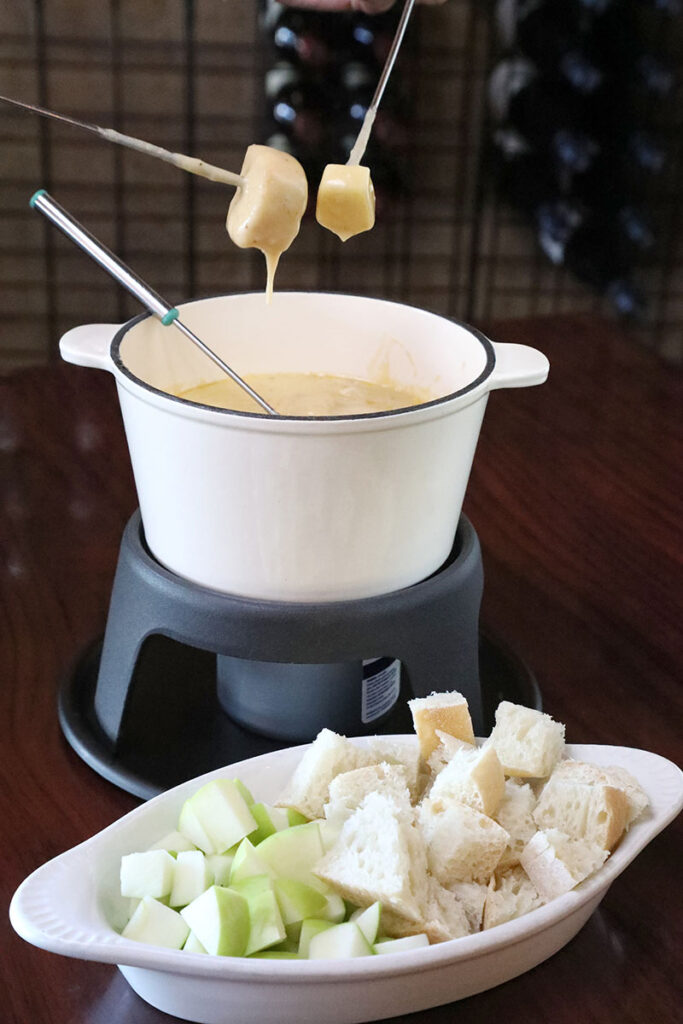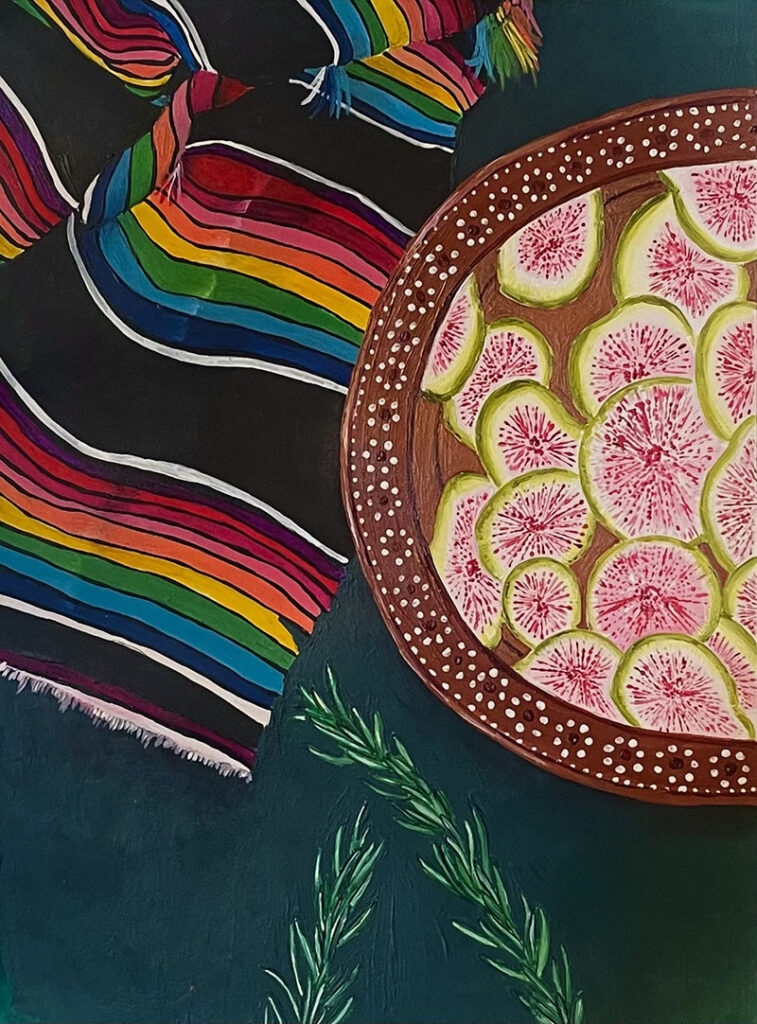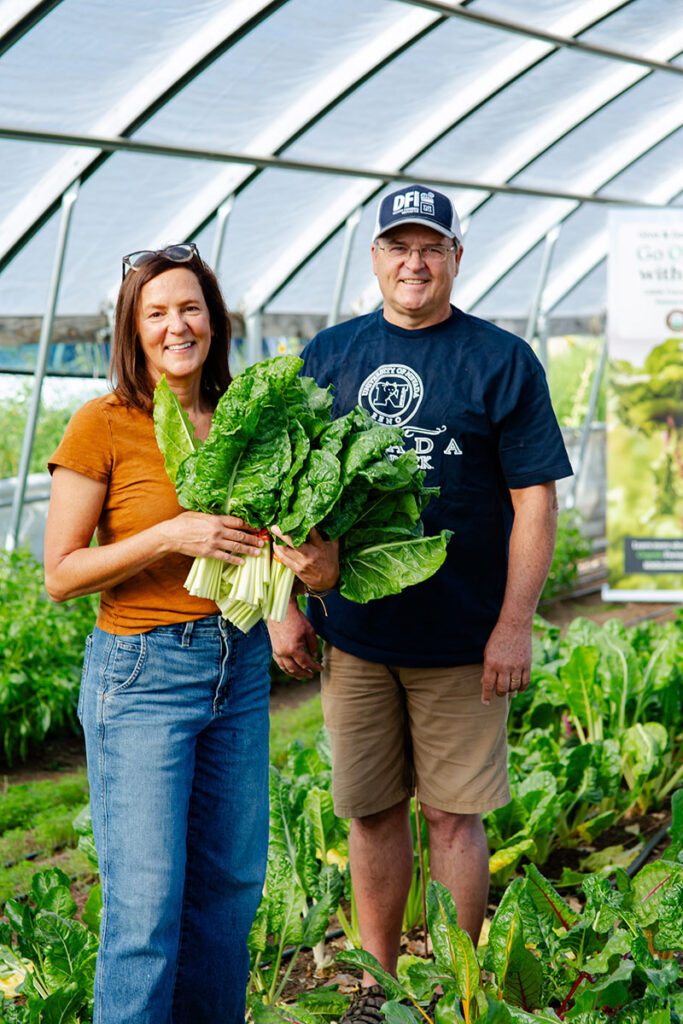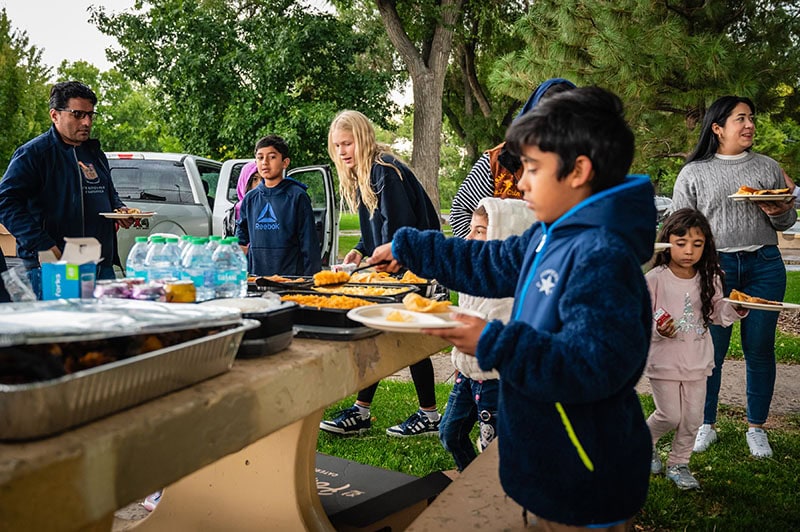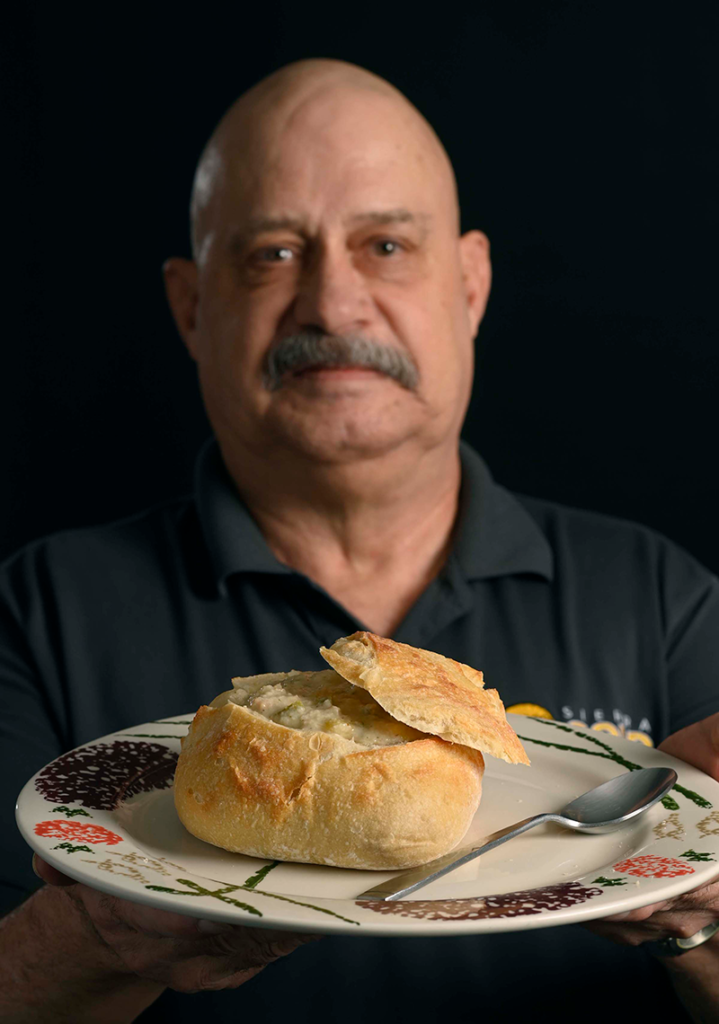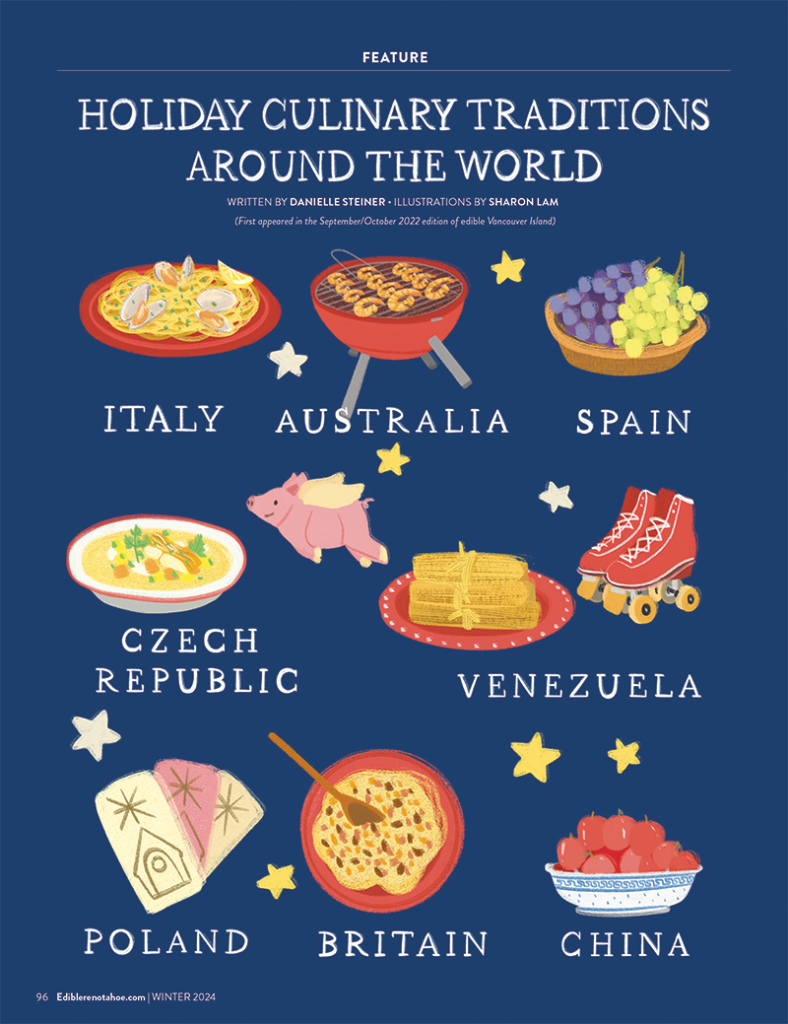Devouring Knowledge
University researchers embark on healthy, tasty, and innovative studies.
Nestled right in our own backyard is a hub for groundbreaking research in the areas of local nutrition, health, and agriculture. At the University of Nevada, Reno, a number of globally important research studies are taking place that could affect the way we eat.
The Gut of Nevada
The gut microbiome, the name given to the community of microorganisms living in our digestive tracts, has become a hot topic in recent years. Despite its popularity, though, we still know very little about it.
“It’s probably the most-talked-about and least-understood aspect of health,” shares Steven Frese, assistant professor in UNR’s nutrition department.
Frese and his team are currently studying the gut microbiomes of Nevadans to understand how diet, lifestyle, and demographics shape our individual health.
“What research has shown over the past 20 years is that, with communities that live in the gut, common themes start to emerge,” Frese notes. “We want to learn how these communities assemble, what shapes them, and what ecological forces determine community composition.”
These gut micro-communities are being studied across Nevada, which is the third most diverse state in the country. This diversity is shown through demographics such as urban and rural populations, ethnic groups, socioeconomic backgrounds, and immigration statuses.
Once these results are uncovered, Frese wants to share his findings to show how our lifestyles and the communities in which we live shape us from the inside out.
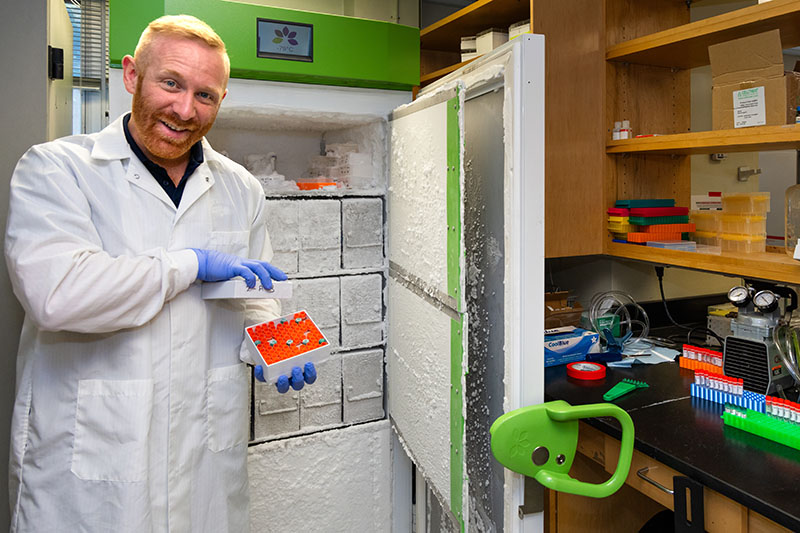
“Our goal is to turn [our findings] into something we can get into the hands of people who need them. Even with this big survey, we want to get data back to folks,” Frese says. “We want to get a sense of dietary patterns and provide that back to them. I’ve had survey participants say they really had a look at what they eat. It ends up being more than just learning about your gut microbiome.”
Interested in joining this research firsthand? Become a participant!
“We are happy to have people participate,” Frese says. “We are trying to encourage individuals from underrepresented groups, to get a representative data set. We have equipment and materials in Spanish as well as English.”
In the meantime, Frese offers words of wisdom to improve the health of your own gut microbiome: “Americans don’t eat enough fiber. Any way we can swap out something highly processed for something that isn’t, it usually means there is more fiber in it as well as less sugar — both of which are important. Always eat more fiber, more whole fruits, more whole vegetables, more whole grains.”
For details about this research and to sign up for Frese’s study, visit Freselab.org/wolfpack.
Preventing Chronic Disease
Fiber is critical for maintaining health. When it comes to preventing or managing chronic disease, eating healthy meals is just the first step of a full journey. Angeline Jeyakumar, assistant professor of nutrition at UNR, advocates for high fiber intake in the management of chronic diseases.
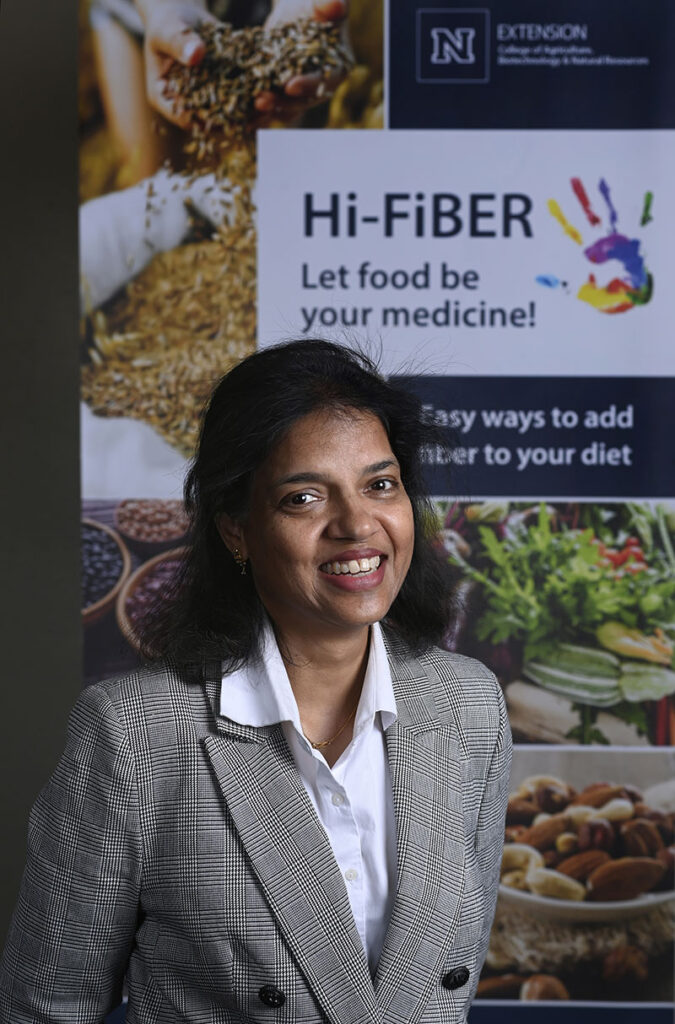
Jeyakumar, who has more than 20 years of experience and expertise in public health nutrition, became Northern Nevada’s nutrition specialist for the University of Nevada Cooperative Extension and the university’s department of nutrition in 2023. With the current increase of chronic diseases among those facing food insecurity in mind, she aims to improve fiber intake among Washoe County residents, particularly those who benefit from food-assistance programs.
To begin the research, Jeyakumar’s team studied the prevalence of chronic conditions among residents who received food assistance. The high prevalence of diabetes, high blood pressure, and obesity, combined with the poor quality and quantity in their diets, urged her team to emphasize the importance of consuming whole foods, fruits, and vegetables. These foods are rich in fiber and benefit those with chronic conditions. According to the United States Department of Agriculture, men need 34 grams and women need roughly 23 grams of fiber per day.
To promote fiber intake, Jeyakumar explains, “We selected foods distributed in food pantries and developed five recipes each for breakfast, lunch, and dinner. The recipes were developed by nutritionists to provide seven to eight grams of fiber each. Our goal was to ensure that, even with limited resources, people could still make nutritious choices.”
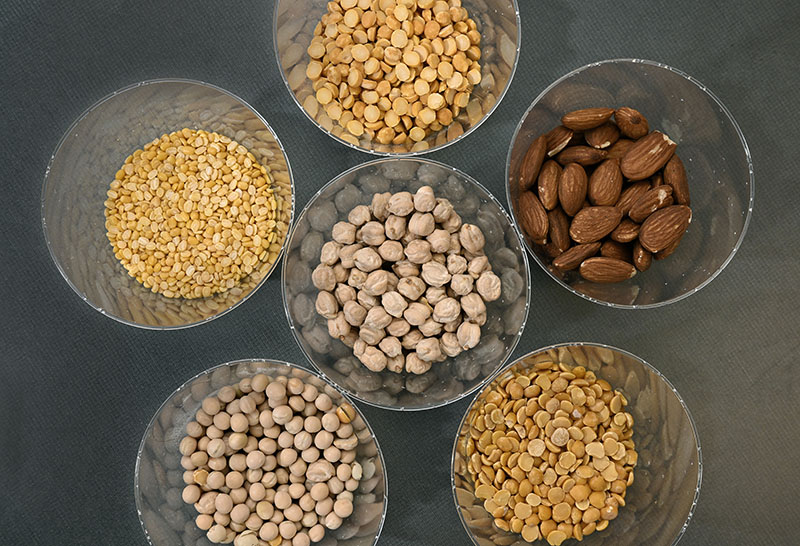
To enhance community awareness, the team has been conducting educational demonstrations at food pantries and other community organizations to a variety of age groups.
“While recipes can be developed to meet dietary requirements, acceptability of the recipe, especially among varied cultural and ethnic groups, is equally important,” Jeyakumar says. “In phase two, we plan to test the acceptability of the recipes in the community.”
For details about fiber-dense meals, programs on fiber and nutrition, or access to recipes created in this study, email Jeyakumar at Ajeyakumar@unr.edu, or call 775-336-0275.
Researching Rieslings
Thirty years ago, a local trial took place to determine which varieties of grapes grow well in the state of Nevada. This research was funded by the Valley Road Experiment Station in Reno and the UNR Extension-Research Center and Demonstration Orchard in Las Vegas.
The data collected from this trial are being dusted off and used today to successfully grow Riesling grapes, which were shown to thrive in our arid and often unpredictable climate.
Most Tahera Naznin, associate professor of urban and indoor agriculture at the UNR department of agriculture, veterinary and rangeland sciences, is furthering this research into Riesling grapes in microclimates across Nevada. She and her team are studying the growth, quality, and production of commercial grapes to support local grape growers. Her recently funded research project began in late 2024 and will run through September 2027.
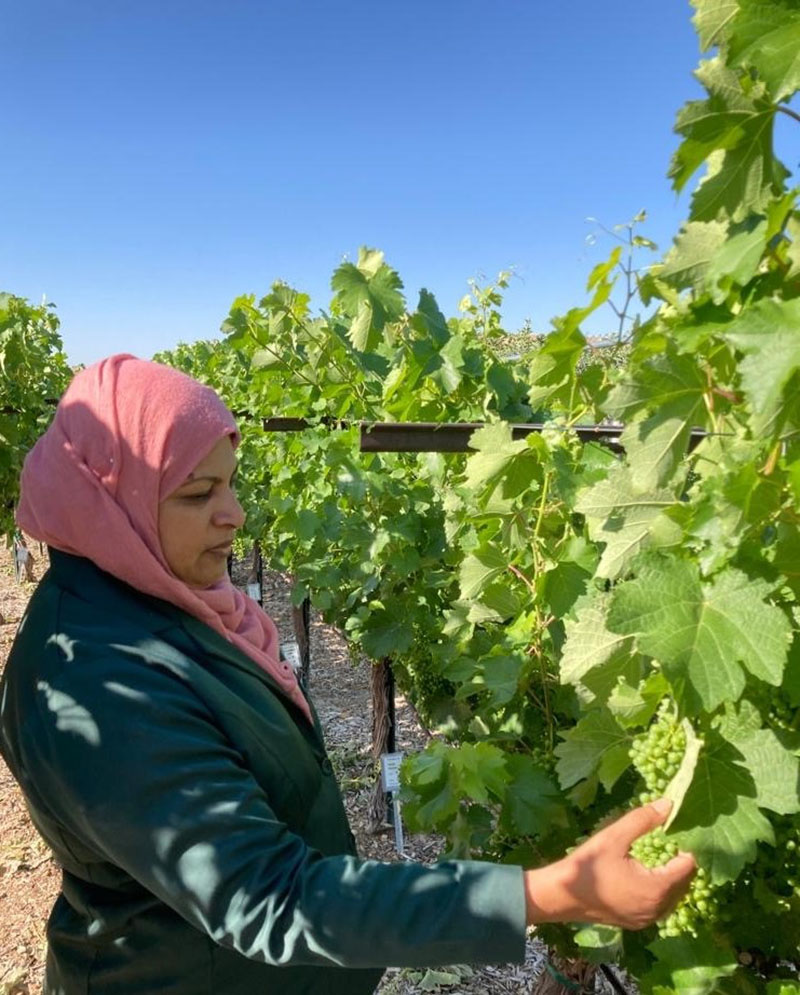
Especially as Nevada’s environments vary across towns and counties, it is essential to evaluate commercial grape resilience and potential throughout the state’s microclimates.
“In our recently granted project, we will look at the different environmental locations and soil quality and see how that impacts the plant growth and quality,” Naznin notes. “We are expecting that these grape plants will do well in the hot regions of the state.”
The research Naznin is undertaking is threefold:
- Examine the growth performance and production of grapes in different Nevada locations.
- Examine the quality and phytochemical accumulation in grapes (phytochemicals are natural plant chemicals that have a special effect on health, such as beta-carotene in orange veggies).
- Share findings and guidance with the grape-growing industry to advance specialty crop production.
The research team has collaborated with industry partners to establish a network of seven grapevine sites. In total, 490 vines were planted to study. All vines have their own root systems, which the team hopes will allow the grapes to grow in a wider range of environments in comparison to the more specific tolerances of grafted grapes. Locations of these vines can be found across the entire state, including in Reno, Carson City, the Tahoe area, and Las Vegas.
Grapes are grown for a variety of reasons, from juice and wine to raisins, food additives, and pharmaceuticals. Once Naznin’s research is complete, the goal is to support grape growers regardless of the reason behind production.
The project team will leverage existing platforms to share research findings and climate-smart guidance, including the Nevada Farm Network, University Cooperative Extension, Desert Farming Initiative platforms, online university platforms, and in-person training programs. Naznin’s findings will help farmers adapt their growing practices to a changing world.
“This is a really big industry, so how can we create our quality production more sustainably?” she asks. “How can we use the minimal amount of resources, including water, to produce more food?”
Once the grapevines do produce, the sky’s the limit for Riesling fruit. The plants will become the blueprint for successful vineyards across Nevada. Further research can help determine the health benefits of grapes against chronic diseases. Most deliciously, though, the fruit sent to the Nevada Sunset Winery, right in Reno’s Brewery District, will become a locally produced glass of wine.
This project is more than a continuation of research — it is a chance to transform Nevada’s viticulture industry for the better.




